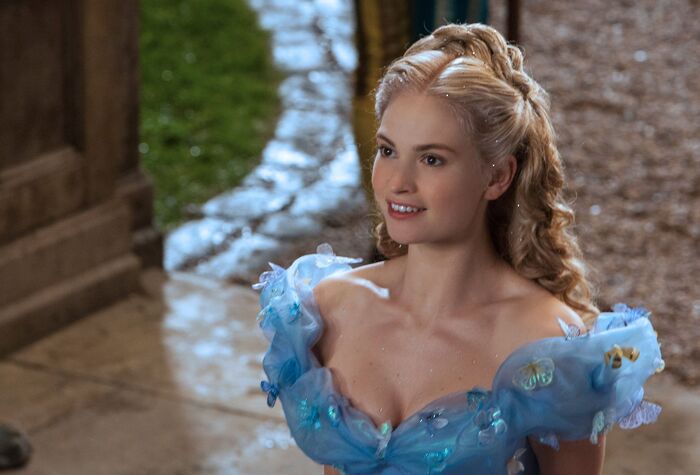Little Women is pure, gorgeous escapism
The new, star-studded version of Alcott’s classic leaves Esmee Wright in a golden-hued dream
Greta Gerwig’s new adaptation of Little Women, Louisa May Alcott’s story of the March sisters, is in cinemas just in time for you to take your mother to see it as a pleasant escape from the looming January blues, having forgotten just how much every version of this story has left you in equal measure revelling in the period’s beauty and raging at its realities. This is a radical version of the 150-year-old classic - much more than a simple retelling.
Gerwig has created an ingenious dissection of a well-known story
Instead, Gerwig disrupts the linearity of the narrative, and focuses primarily on the girls as young adults, already past the recklessness of childhood and struggling with their future - a contrast with previous versions that have shown the girls’ adulthood as the inevitable result of their childhood experiences. This film is far more Good Wives than Little Women: the title of the second half of the story’s UK edition (chosen by the publishers, and certainly not by Alcott). Gerwig has created an ingenious dissection of a well-known story - although the shimmering shifting of time may be subtle enough that if you’re unfortunate enough never to have encountered Little Women, you may struggle to follow the various narrative threads. In this case, it would be well worth visiting the excellent novel as a guide, or any of the several previous screen adaptations.
Gerwig’s Little Women is bookended by two trips Jo makes to the (period-appropriately misogynistic) publisher, Mr Dashwood. The first is to sell her ‘potboilers’, the second her manuscript that (as is more than a little implied) is the text of Little Women. In this version the ‘semi’, already only pencilled in, is being rubbed out of Alcott’s semi-biographical novel. Alcott only married off Jo at the end of the second half of her novel after pressure from readers and her publisher; she herself never married. Jo’s marriage in the film is barely even implied as taking place in the ‘real’ world, filmed in the golden hues of the sisters’ childhood. The family gathering is a lovely conclusion to the struggles the sisters faced in their adulthood.
Saoirse Ronan’s Jo is genuinely in contention with Winona Ryder’s
This fairytale becomes even more fairytale-like in the face of the stern economic concerns Jo expresses about the publishing of her book. Gerwig said that she always read the book as being about ’money, and women, and art and money’. Although Jo’s creative output is arguably not as clearly tarnished by economic concerns as it is in the novel, the film makes it clear how a woman creative - and indeed all women - must always be influenced by them. Jo, it seems, can either care for her family and be near them, or provide from them, writing far away in her New York attic.
Although (in my estimation) Saoirse Ronan’s Jo is genuinely in contention with Winona Ryder’s, this increased focus on the realities of female economic power in 1860s America allows for a break-out star in the character of Amy March. The mean girl of the March sisters is here portrayed by Florence Pugh throughout - unlike in the 1994 version, where she is shared between Samantha Mathis and an incredibly young Kirtsen Dunst. Although this does make her look a little unusual in stature next to some of her schoolmates, Pugh’s Amy, weeping over limes and making a cast of her foot so Laurie remembers her pretty ankles, is suddenly every woman (and even a few men) on Twitter.
Amy is talented at art, but will never have Jo’s genius to make money from it. It is she, even more than Jo, who brings Laurie (whose whimsical European upbringing is played wonderfully by Timothée Chalamet) - and by extension the audience - into the truth about marriage and money. She might run away to Europe and marry the rich boy, but after watching Gerwig draw all the connections together, the audience feels themselves truly understand her - and even love her for it.
This article is not long enough for me to express my love for this production, nor to dissect it as it deserves - and it truly merits talking about, because not even a 19th-century male publisher could deny Gerwig’s genius. Nor, any more, could they question Alcott’s. Never before have I so well understood that ‘just because my dreams are different than yours, it doesn’t mean they’re not important’.
Like many young girls, I devoured Little Women. Like entirely too many adults, I forgot, or maybe never truly understood, the importance of the tales Alcott was telling
 News / Hundreds of Cambridge academics demand vote on fate of vet course20 February 2026
News / Hundreds of Cambridge academics demand vote on fate of vet course20 February 2026 News / Judge Business School advisor resigns over Epstein and Andrew links18 February 2026
News / Judge Business School advisor resigns over Epstein and Andrew links18 February 2026 News / University Council rescinds University Centre membership20 February 2026
News / University Council rescinds University Centre membership20 February 2026 News / Petition demands University reverse decision on vegan menu20 February 2026
News / Petition demands University reverse decision on vegan menu20 February 2026 News / Caius students fail to pass Pride flag proposal20 February 2026
News / Caius students fail to pass Pride flag proposal20 February 2026










